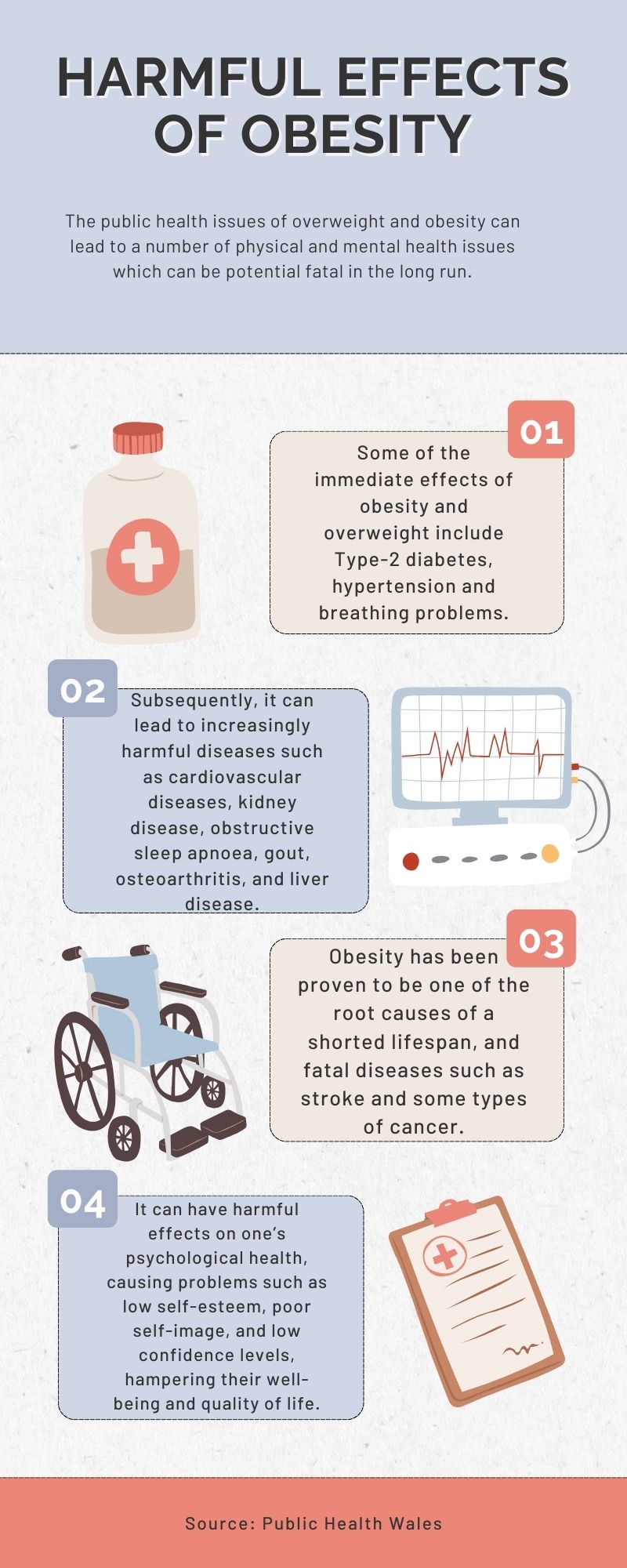Wales’ obesity rates are the highest in the UK, says a recent report from a charity. What are the socio-economic causes behind the significant rise in this problem?

Welsh people are the among most obese in the UK, says a report published by British charity Nesta last week.
The report revealed that Wales’ obesity rates could be as high as 34%, indicating a rise from 25% in the data collected through 2022 to 2023.
“With over 60% of the adult population being obese, it’s high time Wales pays attention to this public health concern and addresses it adequately,” says Jared Williams, a public health professional from Pontypridd, Wales.
The public health consultant currently pursuing a Phd in Cardiff spoke of this “hidden” social and health issue being the worst in the entire UK for several reasons. He said, “The discovery of Wales’ obesity rates possibly being higher than England and Scotland does not come as a surprise owing to its higher poverty and illiteracy rates.”

Recent data reported from NHS Wales specifies how about 62% of the adults in Wales come under the overweight or obese category, out of which 22% are obese and 3% classified as ‘morbidly obese’. Figures indicate how obesity is a major pressure on the country’s healthcare services as NHS Wales spends about £73 million a year on obesity, with an additional £13 million on overweight.
According to this charity, the issue with the data reported from Wales is that it is mostly self-reported unlike England or Scotland where people might be often underestimating their weight in proportion to their height, showcasing a false Body-Mass Index (BMI).
Williams noted, “It is very important to note the difference between someone who is overweight and obese where the former is much milder with lesser health consequences. There has been a significant increase in the number of overweight children in the nation which can later lead to obesity.”

The public health consultant shared how the problem of obesity is not as straightforward as increased calorie intake and prevalence of sedentary lifestyles among people in Wales. According to him, the problem isn’t as simple as ‘eat healthy’ and ‘get moving’, with most of the country’s obesity being concentrated in ‘deprived areas’ in Wales where poverty and illiteracy rates are higher.
“These deprived areas do not just have lower availability of places where one can get nutritious food, but also lack in facilities such as gyms or parks for people to run in,” said Williams, referring to smalls towns or industrial areas in the country.
The Welsh Health Survey specifies that areas such as Caerphilly, Blaenau Gwent, Merthyr Tydfil, Neath Port Talbot, Rhondda Cynon Taff and Torfaen in Wales are some of the deprived areas of the nation and have some of the highest obesity rates recorded.
The World Health Organisation draws a clear relationship between poverty and obesity where areas with higher poverty rates showcased a higher consumption of high calorie or junk foods owing to its easier availability and lower prices.

“The poverty-obesity paradox is one of the recently discovered issues in countries like the US and the UK where one would expect low income households to have lower calorie consumption, but instead the effect is reversed,” said Williams talking about obesity in terms of poverty.
Statistics show how processed foods with high calorie content and lower nutritional value are often cheaper to purchase and hence members of low income households fall prey to this. Additionally, people having low food security do not have adequate knowledge, resources and time to practise a healthy lifestyle.
Manchester-based nutritionist and dietician Khyati Patel says, “Illiteracy and unawareness is often connected with emergence of overweight and obesity all over the world. People with limited resources and time are not aware of the need and availability of nutritional food, and resort to consumption of easily available processed foods.”

The Office for National Statistics listed Wales as also having the illiteracy rate in the UK with an average of 13.3% adults having no qualifications, with it also being the poorest nation in the UK.
Patel said, “Though the Welsh Government has been determined to tackle the problem of obesity in the country, the educated community, along with charities should contribute to educating the masses and make them aware of the evils of obesity.”
In 2019, the Welsh Government implemented the Healthy Weight Healthy Wales strategy to reduce increasing obesity in the country, along with the All Wales Weight Management Pathway (AWWMP) in 2021.
